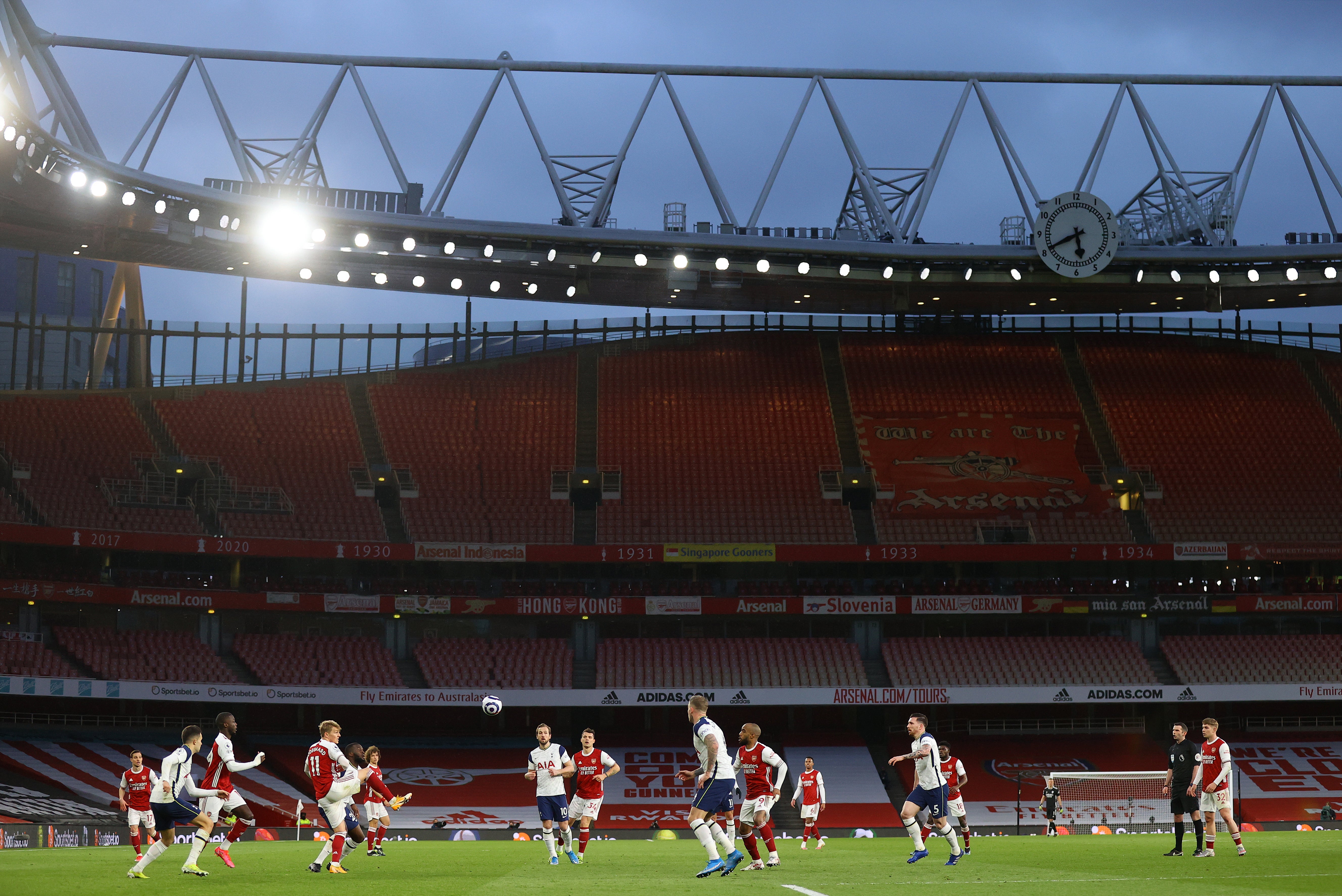Premier League clubs record first fall in revenue amid Covid restrictions
Revenues dropped by about 13% for the 2019-20 season.

Your support helps us to tell the story
From reproductive rights to climate change to Big Tech, The Independent is on the ground when the story is developing. Whether it's investigating the financials of Elon Musk's pro-Trump PAC or producing our latest documentary, 'The A Word', which shines a light on the American women fighting for reproductive rights, we know how important it is to parse out the facts from the messaging.
At such a critical moment in US history, we need reporters on the ground. Your donation allows us to keep sending journalists to speak to both sides of the story.
The Independent is trusted by Americans across the entire political spectrum. And unlike many other quality news outlets, we choose not to lock Americans out of our reporting and analysis with paywalls. We believe quality journalism should be available to everyone, paid for by those who can afford it.
Your support makes all the difference.Coronavirus restrictions saw Premier League clubs report a fall in revenue for the first time, according to new figures from finance company Deloitte for the 2019-20 season.
The lack of matchday spectators coupled with a rebate and delay affecting some broadcast income saw revenue fall around 13%, although the 20 top-flight clubs still brought in a combined £4.5 billion.
A cumulative pre-tax loss of almost £1 billion was also the largest in Premier League history and almost five times the previous season’s £200 million figure as the true financial cost of the pandemic becomes clear.
Dan Jones, of Deloitte’s sports business group, said: “The decrease in revenue in the 2019-20 season is, unsurprisingly, down to the global economic and social disruption caused by the Covid-19 pandemic, and will continue to have a heavy impact on the 2020-21 season’s financial results when available.
“The absence of fans, postponement of matches and rebates to broadcasters had a significant impact on the revenue clubs have been able to generate.
“The full financial impact of the pandemic on the Premier League will depend on the timing of the return of fans to stadia in significant numbers and the ability of clubs to maintain and develop their commercial relationships, in particular at a time when many other industries are suffering.
“Matchday operations are a cornerstone of a club’s business model and fans’ absence will be more fully reflected in the financial results of the 2020-21 financial year.
“Once fans are able to return in full, hopefully during the 2021/22 season, Premier League clubs have the potential to again return to record revenue levels.”
The renewal of the league’s broadcasting deals will contribute to that, but, in the meantime, player wages jumped to occupy 72% of club revenue in 2019-20.
That was a consequence of the fall in income, as wages increased just three per cent in raw terms.
Deloitte’s Tim Bridge said: “In this extraordinary year it is difficult to read too much in to whether this marks a shift in clubs’ approach to wage spending, or one-off elements such as the absence of end-of-season bonuses, which will have been deferred to the next financial year, or the impact of temporary wage cuts or deferrals.
“With wages always representing the largest cost for football clubs we will watch with interest in years to come to understand whether this financial shock will come to be seen as having caused a change in approach and greater control over wage expenditure.”